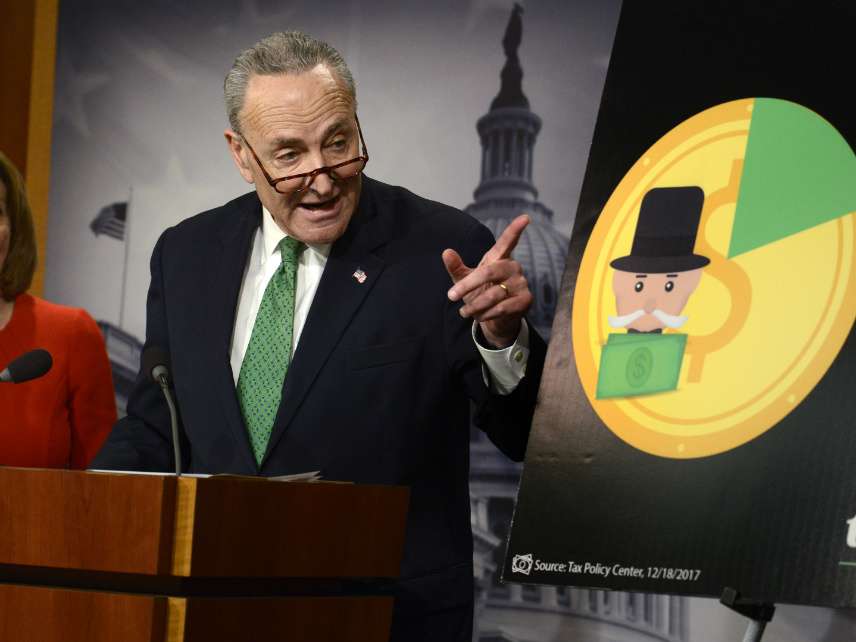Trump Tells New York, New Jersey to Pay for Their Own Damn Rail Project
In the waning days of 2017, the Trump administration pulled its support for the $13 billion Hudson Tunnel project.

It's rare for a president to pull funding from a sweetheart transportation project. But on the final Friday of 2017, the Trump administration announced that it was backing away from an Obama-era plan to lavish billions in federal aid on the Hudson Tunnel project.
Billed as "the nation's most urgent major infrastructure project" by its proponents, the venture envisions a new rail tunnel beneath the Hudson River along with repairs to an existing rail tunnel damaged by Hurricane Sandy. All of this would mostly serve to increase rail transit service within the New York City metro area.
Given the huge price tag—a projected $13 billion—the state governments of New York and New Jersey have spent years trying to shift as much of the financial burden as possible onto federal taxpayers. They temporarily succeeded in 2015, when the Obama administration made a non-binding public commitment to fund half the project.
Officials in the two states have since acted as if this agreement was ironclad, drafting financing plans that depended on this 50/50 split—and also calling for their own local contributions to be funded entirely with federal loans.
But in July, the Trump administration withdrew a representative from the board of the Gateway Program Development Corporation—the umbrella organization managing the project—citing conflict of interest concerns.
And on Friday, Federal Transit Administration Deputy Director K. Jane Williams renounced Obama's 2015 funding pledge entirely in a letter to New York Budget Director Robert Mujica.
The even split between federal and local funding, Williams said in her letter, "would be considerably higher than much existing precedent for past 'mega projects.'" Such a commitment, she pointed out, would completely exhaust the federal government's Capital Infrastructure Grant program on a single project.
Further plans to rely on federal loans, Williams noted, would mean that the federal government would be coughing up 100 percent of the initial cash needed to pay for the Hudson Tunnel project.
Mujica hit back in his own letter, which disputed the idea that federal loans constitute federal support and complained that the change was disrupting the state's plans. "Stepping away from the 50:50 framework now," he wrote, "would represent stepping away from a previously agreed upon path and the entire basis for getting this critical national infrastructure project done."
That framework was never approved by Congress, nor did it go through normal Department of Transportation channels. Williams therefore dismissed the 2015 pledge, stating bluntly that "there is no such agreement" and that instead of pinning their hopes on it, New York and New Jersey need to "directly address the responsibility for funding a local project where 9 out of 10 passengers are local transit riders."
Telling New York and New Jersey to go back to the drawing board on the Hudson Tunnel project is a welcome policy development, as it will hopefully shift more of the burden of funding the project onto those who will actually use it.
As Reason's Baruch Feigenbaum wrote back in September, the expectation that the feds would pay for a new rail tunnel had far more to do with politics than fiscal necessity. "State and local politicians don't have the courage to ask local residents to pay higher taxes or user fees so they argue that any New York City project is national in order to get funding from taxpayers in Atlanta and Dallas," he pointed out. "The Greater New York region is one of the largest, wealthiest metro areas in the world. It's time that local residents start footing more of the bill for their infrastructure."
Rent Free is a weekly newsletter from Christian Britschgi on urbanism and the fight for less regulation, more housing, more property rights, and more freedom in America's cities.


Show Comments (87)